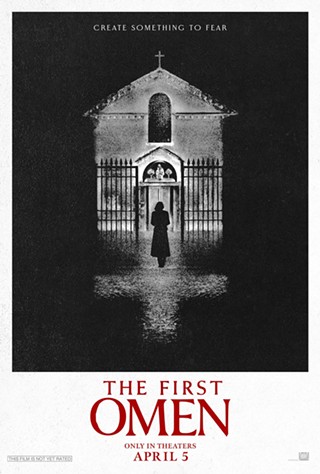Sayles' latest outing, Honeydripper, is a high-energy romp through the backwoods blues scene of the postwar period, dripping with delicious dialogue and salacious sounds. Not really! Actually, Honeydripper is to that movie what a ninth-grade American history textbook is to getting laid by Betsy Ross.
The story is so painfully obvious and trite that it hurts me to even describe it: It's 1950, and the Honeydripper Lounge has fallen on hard times. Owner Tyrone "Pine Top" Purvis (Danny Glover, who currently plays the giant monster in Gloverfield) is going to have to give the place back to his evil landlord unless he can make $300 by the weekend. His only hope: famed electric bluesman Guitar Sam is scheduled to play, and that's sure to pack in the cotton-pickers and Army enlisted men who've been shunning his place for the more hopping juke joints. But will Guitar Sam actually play?
Meanwhile, a plot point arrives on a train: a homeless, wandering, unknown electric guitarist who only wants a hot meal and a warm place to sleep. I wonder how this humble man who, like the famous Guitar Sam, is an electric blues guitarist will figure into this story. And what will happen if Guitar Sam does not arrive? How will Pine Top Purvis ever fill his bar with patrons?? It's a true riddle, wrapped in a mystery, inside a plot twist that could have been borrowed from the final season of Laverne and Shirley.
I mean, seriously, and ferchrissakes, isn't there some sense of shame that would prevent anyone from making this movie, even John Sayles?
And it's not like he gets right to the point: He spends a grueling hour and half before the plot even hatches. Which is strange, because it's a plot twist you could see coming from a distance of more than 12,000 light years, using only the naked eye. It's as obvious as Amy Winehouse ending up in rehab, or Britney Spears getting 5150'd. And yet Sayles dangles and teases it out for 90-plus minutes, and then tacks an additional half-hour onto his already wretchedly long film.
Perhaps the worst part of the movie isn't the plot: The dialogue is so stiff, it's been sold as a substitute for Cialis. And the poor actors have to spit this stuff out like it's Deep and Meaningful.
Sayles could have easily hired someone who has some feel for the Alabama argot of the period, a dialect that screenwriters like Donn Pearce and writers like Faulkner and Flannery O'Connor have turned into silky poetry that flows like a molasses-scented breeze. Instead, he wrote it himself, and it's so tin-eared that you'll walk away remembering virtually none of it. The best thing I can say about it is that it's largely grammatically correct. Kudos to you on that, Mr. Sayles!
So you've got Danny Glover sputtering out these grammatically impeccable sentences to Charles S. Dutton, who does his damnedest to make it flow. Then Lisa Gay Hamilton, as Glover's wife, Delilah, has a horrifyingly educational conversation with the white woman she works for (Mary Steenburgen), during which we learn that, shockingly, African Americans were treated like second-class citizens, and that the lot of women has been a hard one.
Rounding out the cast, newcomer Gary Clark Jr., who plays the drifter-guitarist subbing for Guitar Sam, uses his matinee-idol good looks and every ounce of twitch in his hips to try to breathe some life into this corpse, and for a few minutes here and there, he actually succeeds. But it's all for naught, because even if the ending has a little pep, by then, anyone not on near-lethal doses of Ritalin will have fallen into a coma-like state.
Yet, you can't fault Sayles' intentions. It's just that, as intentions go, his would have been much more impressive 45 years ago. Now he's like the old historian dusting off, one more time, the shelf-worn books that first told the tale of how the South was won. Except these aren't the original books: They're the CliffsNotes to the real story, preserving only the bare form of the characters, the basic outline of the plot and the slap-you-on-the-head moral of the story. What's missing is any hint of life. Which is as it should be: This movie is not here to entertain you; it's here for your edification and ethical up-building.










